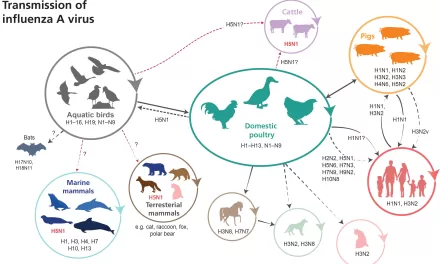In the world of scientific publishing, an alarming trend has emerged, one that threatens not only the integrity of research but also patient health. The recent circulation of a drawing featuring a rat with four testicles and an exaggerated genitalia in a scientific paper serves as a graphic representation of the consequences of prioritizing quantity over quality in scientific output.
For years, concerns have been raised about the proliferation of predatory journals—publishers who prioritize profit over rigorous scientific standards. These journals often overlook the reliability of research, with some even publishing papers from authors who may not exist. While this may benefit certain stakeholders, including researchers eager to bolster their publication records, the consequences for trust in science and, ultimately, patient health, are dire.
The ramifications of lax research practices extend beyond academia, particularly in medical research, where inaccuracies or false data can have profound effects on patient outcomes. Despite efforts to uphold rigorous standards, the sheer volume of scientific literature makes it challenging to detect every instance of flawed research. Thousands of studies are published each week, overwhelming even the most diligent specialists.
The year 2023 marked a record for retractions, with over 14,000 articles withdrawn, reflecting the qualitative limits of an editorial landscape swamped with publications. Notably, a scandal involving the publishing house Hindawi raised concerns about the peer-review process and manipulation of publication procedures. Similarly, prestigious research institutes like the Dana Farber Cancer Institute faced scrutiny over suspicious images in published papers.
While the rise in retractions may indicate increased vigilance against scientific fraud, challenges persist in maintaining the quality and reliability of research. The emergence of artificial intelligence (AI) further complicates this landscape, with the potential for AI-generated content to mask inaccuracies or deliberate fraud.
The enduring impact of past scientific hoaxes, such as the debunked link between autism and the measles vaccine, underscores the importance of rigorous scrutiny and accountability in research. Despite ongoing efforts to improve peer review processes, challenges remain, including lengthy investigations and institutional conflicts of interest.
The gravity of these issues cannot be overstated. Trust in science is fundamental to informed decision-making in healthcare, and safeguarding the integrity of scientific publishing is essential. Books such as “Scienza senza maiuscola” and “Sul pubblicare in medicina” delve deeper into these challenges, highlighting the urgency of addressing systemic flaws in scientific publishing.
In the face of these challenges, stakeholders across academia, publishing, and healthcare must collaborate to uphold the highest standards of scientific integrity, ensuring that trust in science remains unwavering and patient health is safeguarded.












